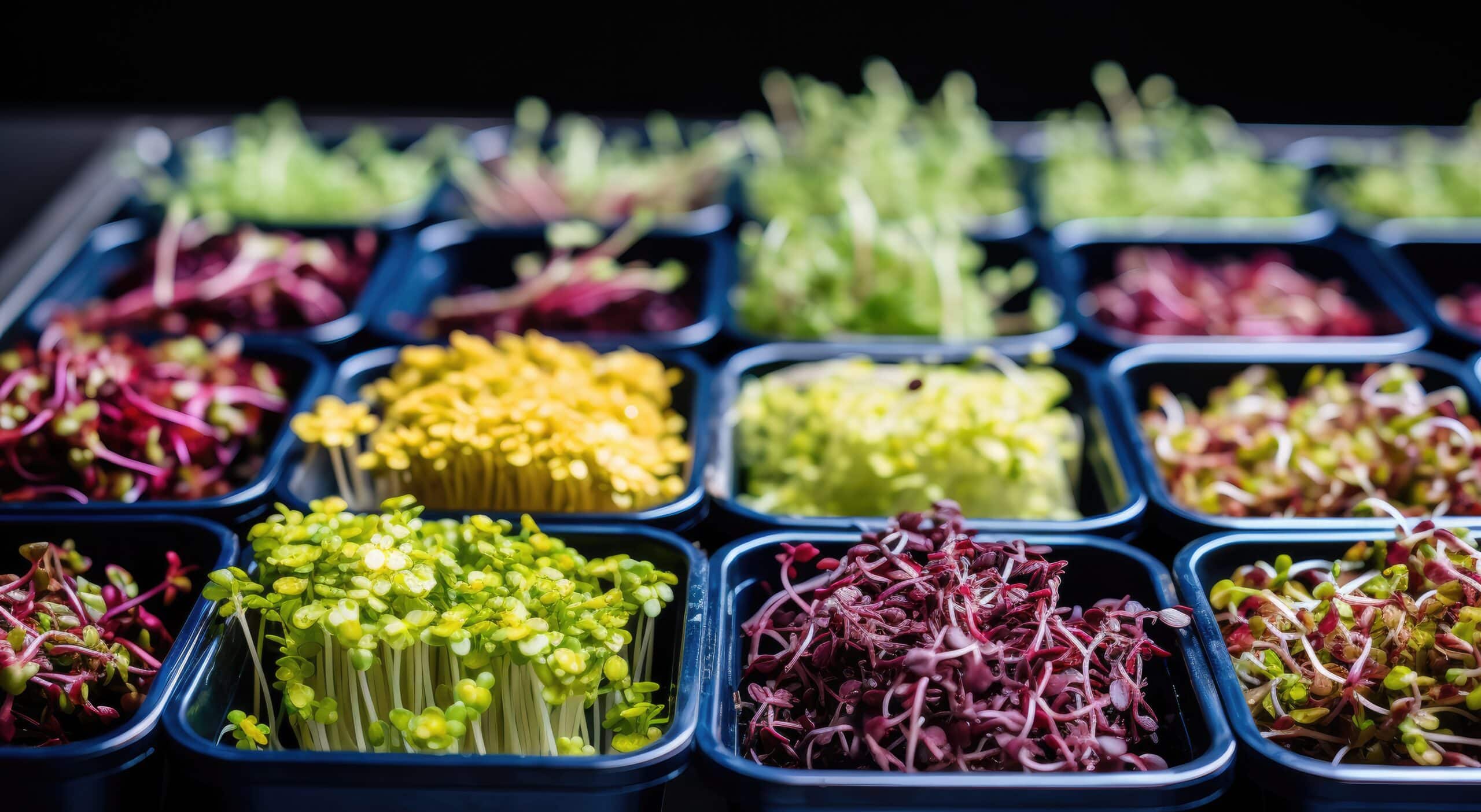Are Microgreens Hard to Digest?
Key Takeaways
- Microgreens are generally considered easy on the stomach due to their tender texture and lack of digestive enzymes that can cause indigestion or acid reflux.
- Microgreens are usually easier to digest compared to standard leafy greens like kale because of their softer texture and smaller quantities.
- Incorporating microgreens into your diet may be a good option if you have a delicate digestive system or experience discomfort after consuming certain vegetables.
Microgreens have gained significant popularity in recent years due to their nutritional value and versatility in culinary applications. These tiny, young vegetable greens are packed with flavor and nutrients, making them a great addition to salads, sandwiches, and smoothies. However, some people may wonder if microgreens are hard to digest or if they can cause any digestive issues. Let’s explore the available information to find the answer.
What Are Microgreens?
Microgreens are the young, tender shoots of various vegetables and herbs. They are harvested when the first set of true leaves emerges, usually within 1-3 weeks after germination. Despite their small size, microgreens are densely packed with nutrients, including vitamins, minerals, and antioxidants.
Expert Opinions
According to Health.com, microgreens are usually easier to digest compared to standard leafy greens like kale. Their softer texture and smaller quantities make them less likely to cause discomfort or bloating.
Another article from Total Gardener states that microgreens lack digestive enzymes that can cause indigestion and acid reflux, making them ideal for people with delicate digestive systems.
Furthermore, Healthline mentions that microgreens are generally considered easy on the stomach as they are young vegetable greens with a tender texture. However, the specific impact of microgreens on digestion or stomach health is not mentioned in the article.
The Verdict
Based on the available information, it can be concluded that microgreens are not hard to digest. In fact, they are generally considered easy on the stomach due to their tender texture and lack of digestive enzymes that can cause indigestion or acid reflux.
Microgreens’ smaller quantities and softer texture make them less likely to cause discomfort or bloating compared to standard leafy greens. Additionally, their high nutrient content can be beneficial for gut health.
Conclusion
If you have a delicate digestive system or experience discomfort after consuming certain vegetables, incorporating microgreens into your diet may be a good option. Their ease of digestion and nutrient density make them a valuable addition to a healthy eating plan.
Related Websites:
FAQs:
Q: What are microgreens?
Microgreens are young vegetable greens that are harvested just after the first leaves have developed. They are packed with flavor and nutrition, making them a popular choice for adding to salads, sandwiches, and other dishes.
Q: What is the nutritional value of microgreens?
Microgreens are nutrient-dense and can contain higher levels of vitamins, minerals, and antioxidants compared to their mature counterparts. They are particularly rich in vitamins C, E, and K, as well as beta-carotene and lutein.
Q: Are microgreens hard to digest?
Microgreens are generally easy to digest due to their tender texture and high fiber content. They can promote healthy digestion and regular bowel movements. However, individual digestion may vary, and it’s always best to listen to your body’s response.
Q: What are the benefits of microgreens for digestion?
Microgreens have a high fiber content, which can aid in digestion and support a healthy digestive system. Additionally, they contain enzymes that can assist in the breakdown of food, making it easier for the body to absorb nutrients.
Q: How can I improve the digestibility of microgreens?
To enhance the digestibility of microgreens, it is recommended to properly prepare and cook them. Lightly steaming or sautéing microgreens can make them easier to digest. You can also combine microgreens with other foods that are known to aid digestion, such as fermented vegetables or probiotic-rich foods.






